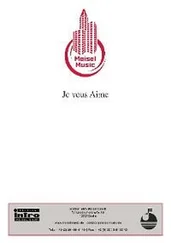The first scan was of a very old and yellow document in a cramped script that hurt my eyes to read and was signed by Nymphadora. The second scan was of an old laser printout, a long, rambling letter from Julia Toneybee-Leroy.
I read both documents again and again, but I didn’t show them to my family. Callie would have raged, I told myself, and my parents would have wept. And I don’t think that’s what Max wanted when he sent them.
On the turnpike, I take the correct exit, but we drive past the gates of the Toneybee. We head downtown instead. Even though it’s February, Main Street is still decorated with pine garlands and oversized red velvet ribbons and between two lampposts, across a fine mesh of muddy netting, a string of glittering electric bulbs spell out COURTLAND COUNTY CELEBRATES DIVERSITY.
I pull over on to a side street and park in front of one of the overly restored Victorians. Callie says, “I’ll get Mom.” She leaves me in the car, in the cold, and I turn off the static of the radio and sit quiet.
Each year that we make this trip back to Courtland County, I have the terrible premonition that I will see Adia. I feel it with a certainty that glows from the middle of my chest and warms my skin in prickling fear and anticipation. Even now, as I sit in the car, I catch a glimpse of the back of a brown bald head and I gasp, and fight the urge to dive down in my seat and hide below the window line.
But it is obvious, after I blink, that it is merely the profile of a very skinny fifteen-year-old boy. And I remind myself that I am being silly, that it would be impossible for Adia to look the same now as she did twenty years ago, and impossible for her to walk down this street, precisely as I sit in a parked car, waiting for my mother. As much as I would like to believe I would be able to recognize Adia anywhere, that some small muscle in the back of my knee, or down around my elbow, say, would flip over in dull ache and recognition in her presence, I know, in reality, this would not be true. She could have passed me on the street or in an airport a dozen times in the last two decades, she probably in all likelihood has, and I have not known her.
Besides, it is impossible that she would be here, today, now, because she is a graphic designer in San Diego, married to a Polish man and mother of three sons. An entirely disappointing and pedestrian end for my Adia. It feels like an outrage. For all the torment she caused me, I willed her to grow up and become some sort of artistic terrorist: burning down monuments or etching scratchitti on the glass doors of expensive galleries or tearing oil portraits of our nation’s forefathers to ribbons. Then, at least, our painful time together would have been worth it.
I prefer, in my heart of hearts, to imagine that for Adia, domesticity is only a bivouac of sorts, that she is amassing her powers and will burst back into the world, soon enough, beautiful and merciless and ready again to devour hearts and history. But this is unlikely. We are both past thirty and should have done all our bursting by now.
Callie comes down the wooden steps of the old Victorian. She is carrying a large pile of presents for my mother, who walks behind her, slim and sober in a Michelin man coat. My mother has the same hairstyle now as Adia once did: shaved close to her skull, the better to show off her long and only slightly wrinkly neck.
Callie gets into the back with all the presents and my mother gets into the front beside me.
“You look good,” she says. “Both my girls look good.”
Callie beams at her for the lie.
She teaches sign language to every new hire at the Toneybee, and she teaches it to the new chimps, the ones just born, though they don’t allow her to ever be alone with them. The job was the Toneybee’s final bribe. It wasn’t needed, my mother would never have told what happened between Callie and Charlie, but they gave it to her anyway, a kind of insurance. When the Toneybee published their groundbreaking full study of Charlie a few months later, they said the experiment ended successfully and that the Freeman children showed all signs of happiness and no one has ever contested it.
I make a U-turn in her street. We turn back on to the highway and we drive back to the gates of the Toneybee. In the gatehouse is a new guard. She tells us Dr. Paulsen is expecting us. She waves us through with a smile. Lester Potter retired ten years ago, and in his place is a whole staff of security guards, mostly women and very young men, in nicer versions of Lester’s uniform. The Toneybee Institute has recovered enough in its fortunes for that.
The trees along the drive are bare. Past them, I could see a little bit deeper into the forest, where a few newer outbuildings have gone up. When we get to the end of the drive, we pull into the main parking lot. My mother would prefer it if we entered through the employee entrance, but Dr. Paulsen is waiting for us on the steps, eager to usher us through the lobby.
She looks exactly the same. She hugs my mother very tightly. Callie, too.
Dr. Paulsen does not waste time on small talk. It makes her uneasy to have us there. When she ushers us through the halls, her tongue darts across her lips and her eyes are downcast. This, despite the fact that we are the cause of her unprecedented success. The new buildings and the plural security guards and the better uniforms are all because of Charlie and our family, the fame and interest we brought her.
Charlie gave up his life in science a few years ago. It was after his retirement that we began to make these yearly visits to him.
We pass the cafeteria, the downstairs labs. We go upstairs and pass our old apartment without comment. It’s been converted into office space: a regular glass door where our front wooden one used to be. We are in the right wing of the building. Here, there are larger pens with two or three chimps in each: their hair is graying, their teeth are yellow, and a few are hunched over in arthritic discomfort. It’s where the older chimps retire.
Charlie’s pen is at the very back and he has it all to himself. He doesn’t share because he still cannot stand to be around other apes. He infinitely prefers people. Dr. Paulsen tried to mate him about a decade ago, but all attempts were unsuccessful. He ignored the pretty girl apes she put before him. He has spent a furiously celibate life. Abstinence is not natural for an ape, but he has refused all other options. Eventually, in his frustration, he began to make passes at the female lab workers, then the male ones, too, and this was part of the reason he left his life in science early.
His pen is larger than the others, with a television suspended from the ceiling in a battered cage. It’s always on, nearly always turned to a classic movie channel, in the hopes of catching a Western.
Callie is carrying most of the gifts. My mother has Callie’s plastic bag. The velvet box is still secreted in my purse.
When we reach him, Charlie has his back to us. He is gazing up at the television, laughing hoarsely. My mother calls, “Charlie,” but he doesn’t turn. He very rarely turns for her voice. He’s frozen her out: he’s miffed, even twenty years later, that they no longer live together, that she no longer wakes him in the morning and soothes him to sleep at night.
When Callie calls, “Charlie, Charlie,” he turns and happily pads over. She’s gotten that, at least, his admiration.
A lab technician unlocks his pen and we file in, placing the pile of gifts on the floor. Charlie paces back and forth anxiously as we arrange the boxes. He remembers the routine and he is rocking now, keen with anticipation for all his surprises. As soon as we’ve set the last box on the ground, he surges forward and starts tearing at wrapping paper with his yellowed, curling nails, his softened old teeth. He tears and tears until he’s forced the first box open and then he dips his head inside and ruts. When he comes back up for air, the ends of his beard are a bright, fluorescent pink, frosted with sugar dust. Those boxes came from Callie. She’s packed them to the brim with kids’ cereal.
Читать дальше
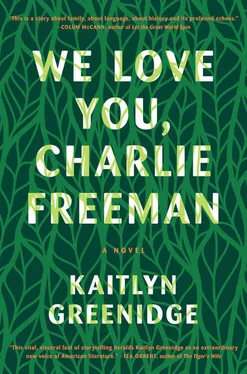





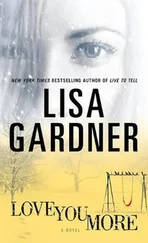
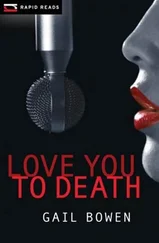
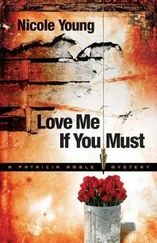

![Ally Carter - [Gallagher Girls 01] I'd Tell You I Love You But Then I'd Have to Kill You](/books/262179/ally-carter-gallagher-girls-01-i-d-tell-you-i-lo-thumb.webp)

